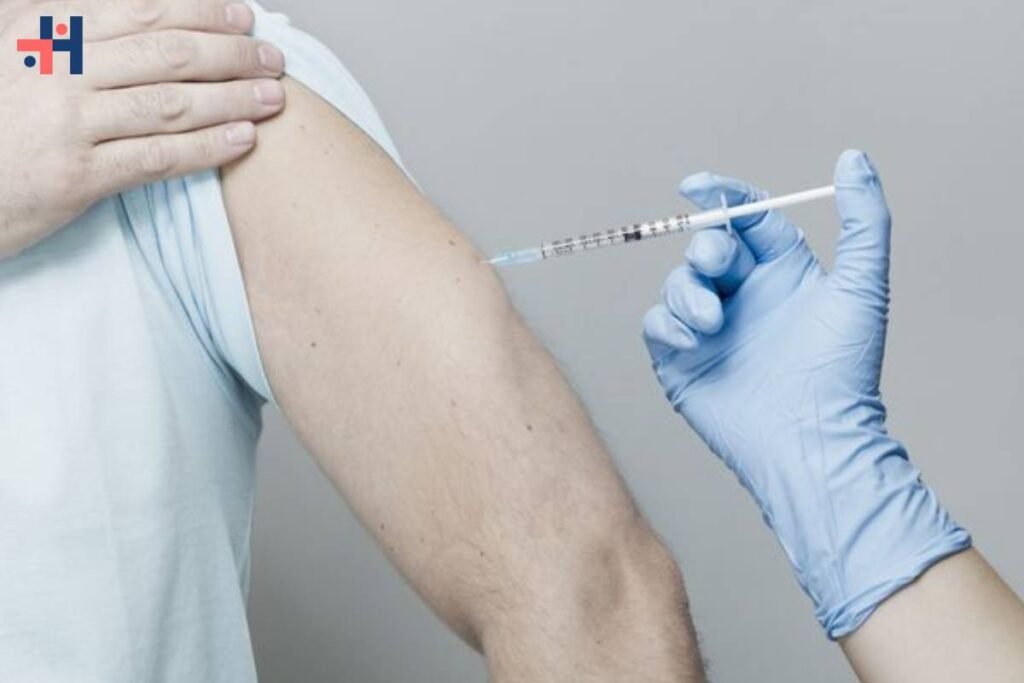(Source-GETTY-IMAGES)
You’d think that a vaccine capable of preventing tens of thousands of cancer cases annually would be in high demand for both adults and children. However, recent data presented ahead of the American Society of Clinical Oncology (ASCO) annual meeting reveal that this is not the case for the HPV vaccine.
The latest findings indicate that the vaccine reduces the risk of HPV-related cancers by 56% in men and 36% in women. These numbers, which likely understate the vaccine’s efficacy, were derived from an observational study conducted by researchers led by Jefferson DeKloe, a research fellow at Thomas Jefferson University. The participants in the study likely received the vaccine too late to prevent all HPV infections.
Established Benefits of the HPV Vaccine
It has been known since the introduction of Gardasil by Merck in 2006 that the HPV vaccine decreases the risk of human papillomavirus infections and the precancerous lesions they cause in the cervix. Additionally, a breakthrough in 1999 by researcher Maura Gillison linked throat cancer in men to HPV, similar to cervical cancer in women. This discovery hinted at another significant benefit of the vaccine.
While data on the vaccine’s efficacy in preventing throat cancer emerged slowly, the problem became apparent. According to the Centers for Disease Control and Prevention (CDC), about 37,000 cancers annually are caused by HPV, including 12,500 oropharyngeal cancers in men and 10,500 cervical cancers in women. The virus also causes rarer cancers of the anus, penis, vagina, and vulva.
Comprehensive Study Highlights HPV Vaccine’s Effectiveness
The data presented at ASCO come from a vast database of electronic health records from 90 million patients, collected by TriNetX. Researchers compared approximately 1.7 million vaccinated patients with a similar number of unvaccinated patients. The study sample included 56% females, 53% whites, 21% Black/African Americans, and other backgrounds.
Despite potential biases, such as patients receiving the vaccine after HPV infection or inaccurate vaccination records, the results were significant. Vaccinated males showed 3.4 cases of HPV-linked cancer per 100,000 patients compared to 7.5 per 100,000 in unvaccinated males. Vaccinated females had 11.5 cases per 100,000 compared to 15.8 per 100,000 in unvaccinated females.
Other studies have shown the vaccine’s greater efficacy when administered at a young age. A recent study in Scotland found no cases of cervical cancer in women vaccinated before the age of 14.
Persisting Low Vaccination Rates
Despite the vaccine’s proven effectiveness, its uptake remains low. Another ASCO study found that between 2011 and March 2020, HPV vaccination rates in U.S. adolescents and young adults rose from 7.8% to 36.4% in males and from 37.7% to 49.4% in females. This means a majority of individuals still remain unvaccinated.
Multiple factors contribute to the low vaccination rates, including rising vaccine skepticism and hesitancy, which existed even before the COVID-19 pandemic. While Merck’s political maneuvering during Gardasil’s launch and the substantial profits it reaped—sales grew 29% to $8.9 billion last year—also played roles, the real story involves a dedicated researcher, Kathrin Jansen. Despite internal skepticism at Merck, Jansen championed the vaccine’s development and later led Pfizer’s vaccine efforts during the pandemic.
The Uncontested Need for Wider Vaccine Use
At this point, there is no real debate about the HPV vaccine’s potential to prevent tens of thousands of cancer cases annually if used more widely. It is a remarkable product with the power to save lives. The challenge remains in overcoming hesitancy and ensuring broader adoption of this life-saving vaccine.










